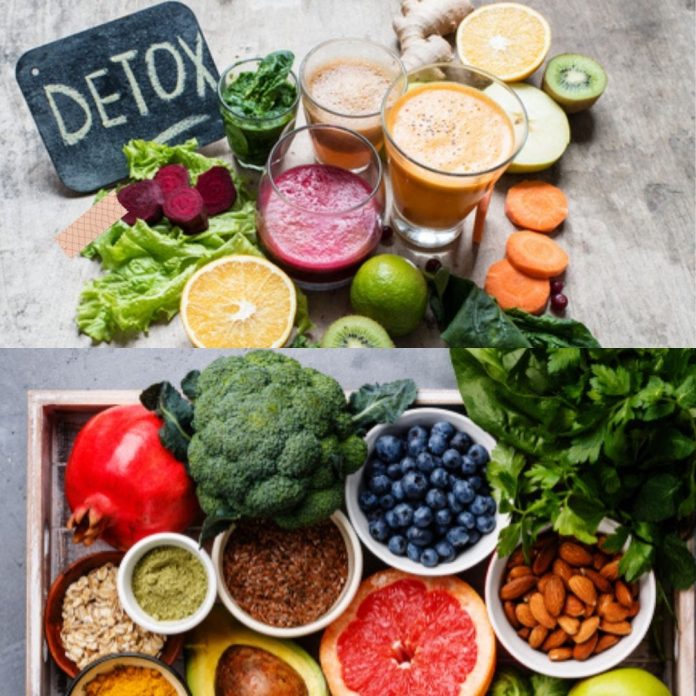Relax, this is article is not going to sermonise you on what to eat, drink or not to eat or drink, because of your festive excesses (if any).
In fact we want to tell you that you DON’T need to detox.
I can hear your sigh of relief!
Yes. For many of us, detoxification has a connotation of a diet or a fast wherein one is deprived of all food. In fact the word diet has been wrongly associated with the concept of detoxing; in reality detoxification is a process of purification which occurs naturally in the body, where free radicals in the body are cleansed.
They’re popular, but they aren’t proven to do what they say they’ll do: flush toxins out of your system. In fact, they may be risky and even backfire.
Still thinking about it? You should arm yourself with a few detox facts first.
What You Can Eat and What You Can’t
That depends on the particular detox diet you’re following. There are many of them. Some involve fasting, or just drinking liquids. Others allow some foods, mostly fruits and vegetables. They typically are short diets — they’re not a way of eating you can stick with in the long run.
Level of Effort: High; Side Effects: Many
You’ll be hungry and may feel weak. Whether or not a detox diet is safe depends on the plan and how long you stay on it.
Popular detox diets ask that you give up gluten, dairy, protein, fat consumption depending on what the goal is. For instance you could be on only certain juices, certain fruits and specific foods during a detoxification process.
How long your detox process is for is also of significant importance.
Most people don’t feel good on low-calorie, nutrient-poor diets. Experts point to the potential side effects of low energy, low blood sugar, muscle aches, fatigue, feeling dizzy or lightheaded, and nausea.
Detox details
Limitations: You’re going to go without a lot of the foods you usually eat. Detox diets are typically very rigid and involve eating the same few things over and over. Some popular examples are the Banana/ fruit and milk detox, only liquids (read: soups and juices) detox etc.
Cooking and shopping: Depends on the detox plan you’re following. Because there’s not a lot you’re allowed to eat, you won’t have a long shopping list and prep work should be minimal.
Packaged foods or meals: Freshly prepared foods/drinks are recommended.
Exercise: Not required, and you may not have the energy for it, because you’re not getting that many calories.
Supplements: Some detox plans recommend herbs, pills, powders, enemas, and other forms of colon cleansing. A detox diet may also call for some supplements and other products.
Does Detoxifying Work?
Most doctors feel that if your goal is weight loss, a detox diet might help you drop a few pounds, but you’ll likely just gain it back. In the end, you haven’t accomplished anything, and it’s certainly not a healthy approach.
If your goal is to detox your system, don’t waste your time or money. Your body is an expert at getting rid of toxins no matter what you eat. Toxins don’t build up in your liver or kidneys or any other part of your body, and you’re not going to get rid of them with the latest detox wonder.
Especially avoid diets that promise to detox your liver with supplements or “cleanse” whatever the diet determines needs washing out.
The only type of diet that is worthwhile is one that limits processed, high-fat, and sugary foods, and replaces them with more whole foods like fruits and vegetables.
So should you detox?
Quite simply, no. It’s a very loosely used word for a meal plan which does not suit everyone especially seniors.
Not only are detox diets not good for people with certain medical conditions, they could be harmful.
There is no research showing they improve blood pressure or boost heart health or cholesterol.
For people with diabetes, they may be quite dangerous. Any diet that severely restricts what you eat could lead to dangerously low blood sugar if you take medicine for diabetes.
The exception would be a diet that just focuses on clean eating. This approach could be great for anyone living with high cholesterol, diabetes, and heart disease.
What does clean eating mean?
The fundamentals of eating clean encourage you to consume more whole foods — such as fruits, vegetables, lean proteins, whole grains and healthy fats — and limit highly processed snack foods, sweets and other packaged foods. An example of a meal containing all of these foods would be a spinach salad with grilled chicken, barley/ jowar bread / roti, avocado, walnuts or almonds and apple slices.
A clean-eating approach is your best bet to getting your body in tip-top shape.
If the idea of detoxing appeals, you might try “clean” eating that focuses on vegetables, fruits, whole grains, and lean protein — basically, whole foods without a lot of processing.
Whole foods are good for you and more likely to give you results that last, especially if you make exercise a regular habit.
The Final Word
We’ve heard a great deal about detox diets in recent years. But it’s all hype with no noteworthy health benefits. There are many ways to get your body clean and healthy. So dear seniors, we don’t recommend you detox yet, and especially not before talking to your dietician or doctor and they show you the green signal.








